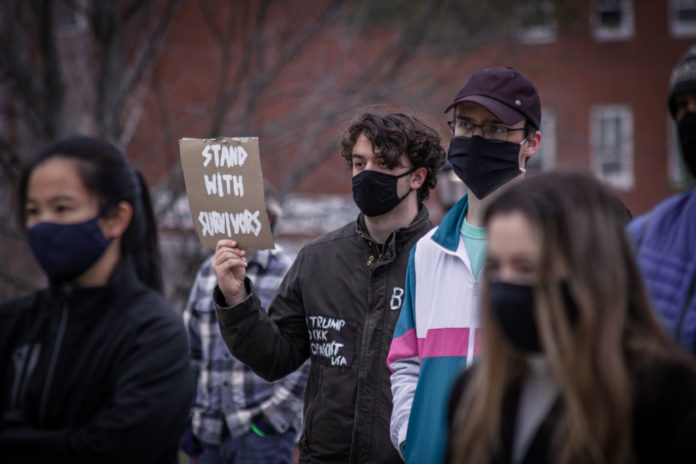

Warning: This story discusses sexual violence, which may be triggering to some readers.
After two Instagram photos by a Mount Allison University student ignited a firestorm of protests against sexual violence across New Brunswick university campuses, St. Thomas University responded to sexual assault allegations involving the University of New Brunswick Student Health Centre.
Jeffrey Carleton, associate vice-president communications at STU, said the university was notified of allegations involving the health centre, a shared resource between STU and UNB, on Wednesday. Carleton said the first steps in approaching the situation included communicating with UNB and those involved.
“Any students who had appointments through the health centre that were upcoming or that had [been] previously scheduled were being contacted by the UNB Health Centre or Horizon Health and alternative arrangements were being made,” he said.
Some of the allegations involving the health centre were made through an Instagram account called @accountabilityatunb, which features other testimonials about sexual assault on STU and UNB campuses.
About 80 people attended a protest against sexual violence at the UNB Fredericton campus on Friday. The protest featured 10 speakers and included five anonymous testimonials that shared stories of assault on campus. There was also a protest at UNB Saint John.
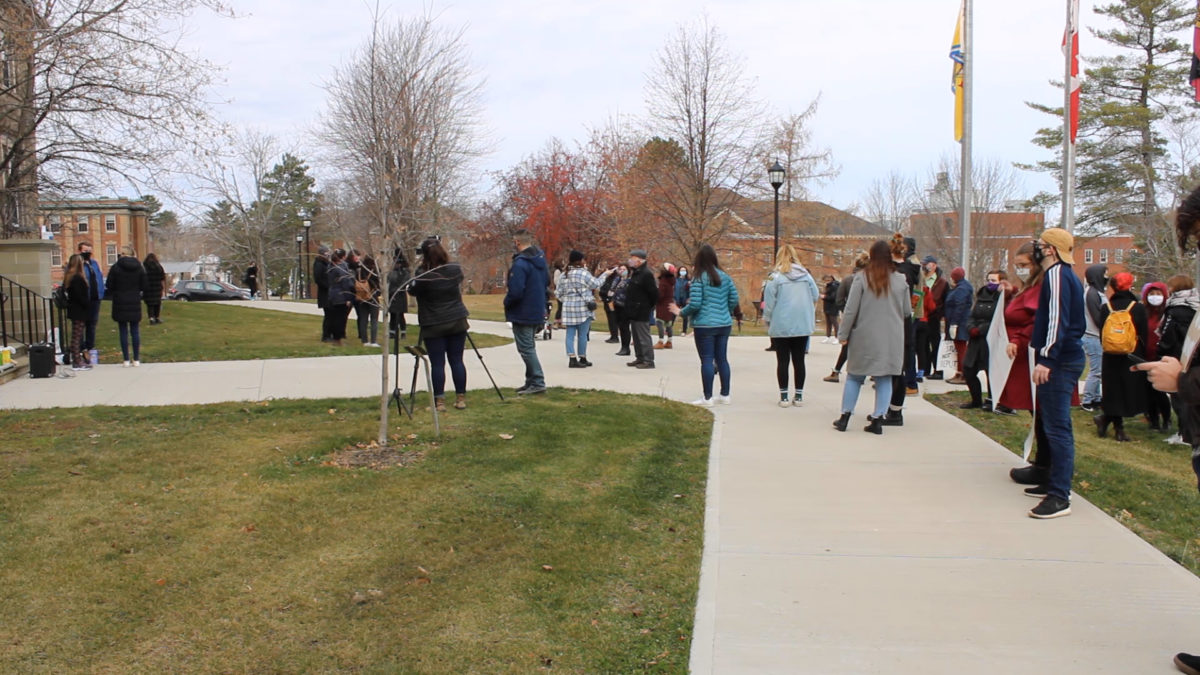
The gathering at UNB followed a protest against sexual violence of about 400 people at MTA in Sackville on Thursday. It came after Michelle Roy, a fifth-year MTA student, shared two photos in her graduation cap and gown next to the university’s sign, holding posters that read “[Mount Allison] supports rapists” and “[Mount Allison] silences victims” earlier this week on Instagram.
MTA released a statement on Nov. 8 that said it is committed to hearing the voices of survivors.
“There is an ongoing need for us to listen to and understand the lived experience of survivors and a responsibility to continually review our approach to ensure all that can be done is being done,” the statement read.
The spark
Roy was sexually harassed in 2016 during her first year of university, which led to a violent physical altercation. She started speaking out after her experience and about 12 others came forward with stories about the same person.
They went to make a formal complaint, but Roy said the university used fear tactics to coerce them not to. Still, one student did and had their case go to the judicial board. Roy said the abuser was found guilty and told to leave campus. A few months later, he appealed the decision and the university allowed him to move back into residence.
Last week, a professor put Roy in contact with a first-year student whose experience reminded her of her first-year.
Roy had graduation photos the next day but knew she couldn’t take normal pictures knowing what new students were walking into when they came to MTA. She said she decided to go out with a bang. That’s when she posted the now-viral photos.
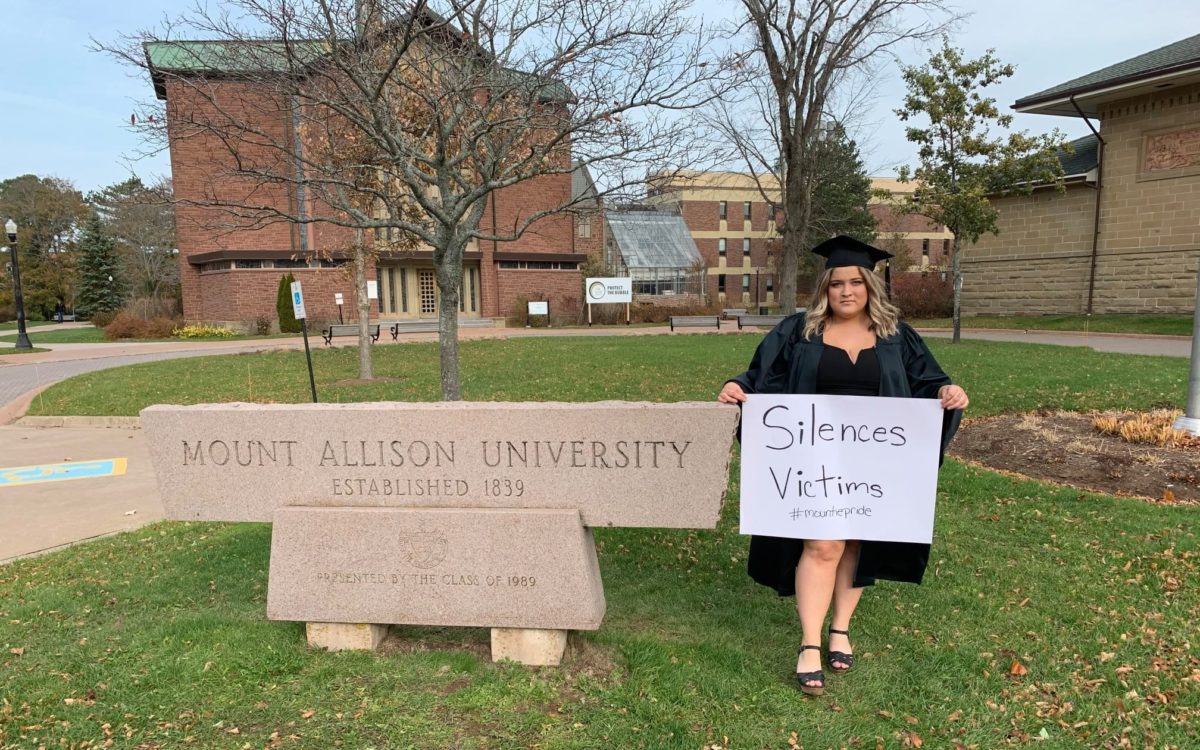

MTA released an action plan on Nov. 12. The plan included pledges to increase resources to support sexual violence prevention and response strategies, implement immediate changes to sexual assault intake and counselling services and establish a Sexual Violence Prevention Working Group at MTA. The university also promised to initiate a comprehensive third-party review of Mount Allison’s sexual violence prevention model, resources, policies and procedures.
Roy said she gave the university suggestions before it released its plan and said it took some of those recommendations into account.
“I do believe that if they actually go forward with this, there’s so much opportunity for the university to better themselves,” said Roy.
Students respond
At the protest on the UNB Fredericton campus, Miranda Murphy said she left UNB almost three years into her undergraduate degree because of the lack of consequences for her abusive ex-boyfriend. She met with the university last year with documents of her court hearing, along with ideas on how to make the campus a safer environment for herself, but nothing happened, she said. To prioritize her safety, Murphy dropped out while her abuser was able to finish his degree.
When Murphy shared her story last week, she said she was overwhelmed with positive feedback from other survivors. Some said they decided to share their stories and report their abusers because of her. Still, she wanted to do more and said Roy inspired her to organize the protest in Fredericton.
“I’m at the point in my healing journey where I feel like I want to advocate for change and I’m able to speak publicly about my experience being a survivor,” she said.
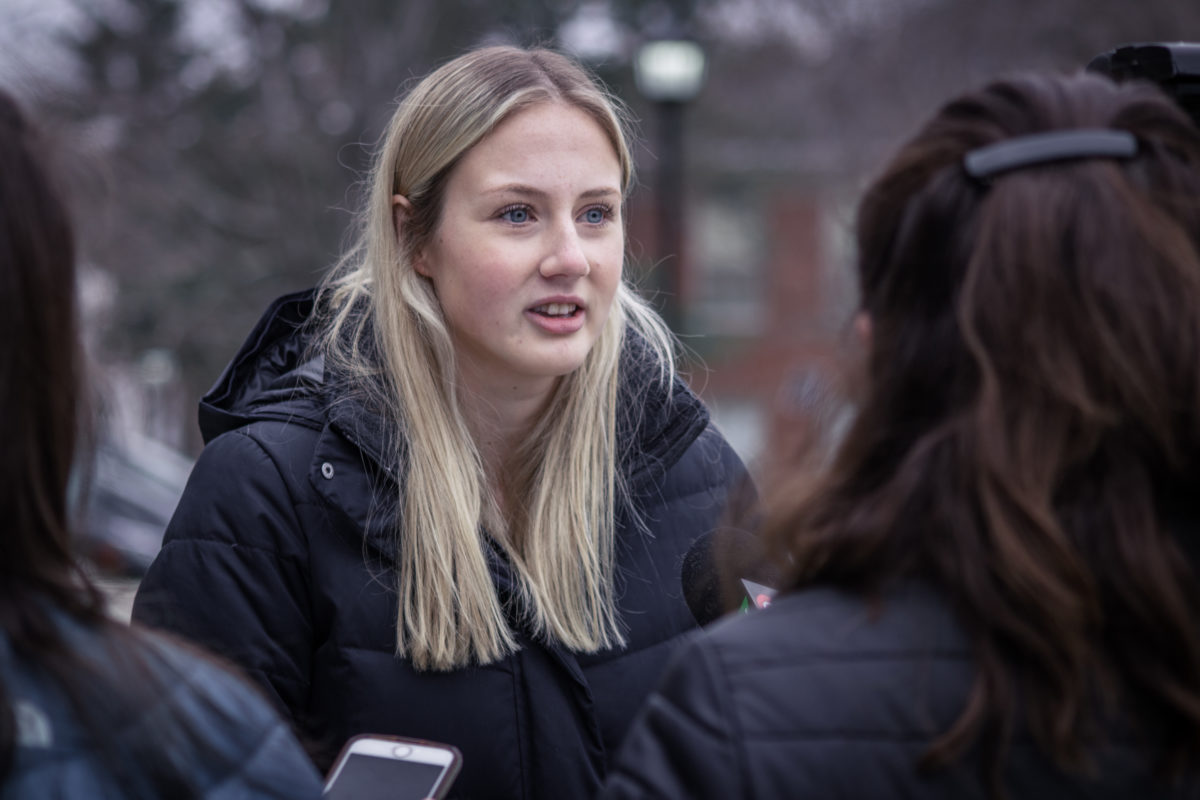

Murphy said she wasn’t surprised by UNB’s statement about sexual assault released Friday, given her experience with the university.
“I think the undertone of the statement [is] extreme gaslighting for all survivors of sexual assault and domestic violence like myself,” she said. “It shows an extreme lack of accountability on their end. It’s quite deplorable and disgusting.”
Sarah Kohut, president of the STU Students’ Union, attended the protest. She said she spoke with Kim Fenwick, vice-president academic and research at STU, Friday morning about how STU can support students. As a student-led organization, Kohut said STUSU is there to help students.
“We support students and we stand with students. Please, do not hesitate to reach out to me,” she said. “I’d be happy to hear anyone’s recommendations on what we should do moving forward.”
Universities “clearly need” more resources
David Coon, Green Party leader and MLA for Fredericton-South, attended the protest as a guest speaker.
“It always struck me as incredibly bizarre that the shame that goes with sexual assault and sexual violence is not felt by the perpetrator but rather on the survivors,” Coon said. “The perpetrators need to be held accountable and there need to be consequences.”
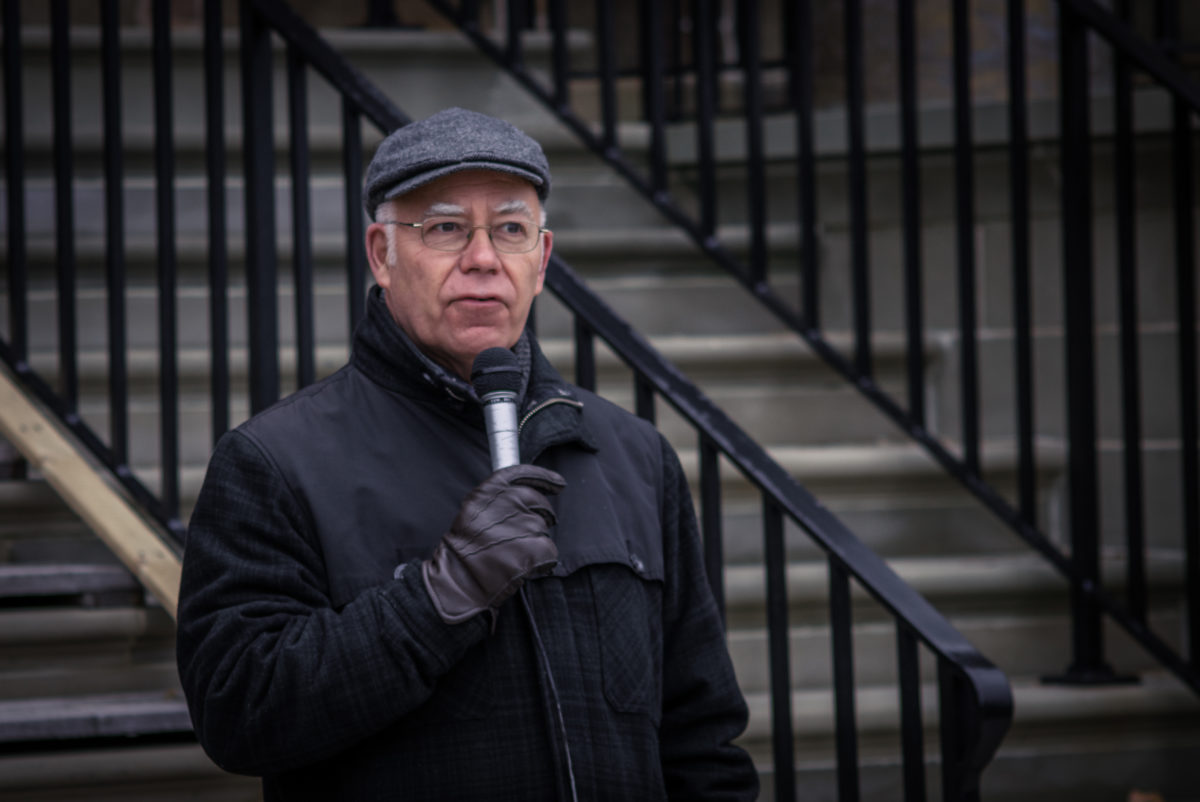

Coon said students should have the expectation that administrations are “doing the right thing” and supporting the community. He believes university administrations get nervous about their reputation whenever sexual assault on campus is mentioned.
In an interview with The Aquinian, Coon said universities in N.B. “clearly need” more resources. He said it’s a conversation the provincial government should be having with local institutions.
Coon added there are “a lot of problems” with New Brunswick’s justice system and how it handles sexual assault and sexual violence.
Universities respond
Survivors’ names were mentioned in some of the allegations involving the UNB Health Centre. Carleton said STU is reaching out to the students and putting them in contact with the campus sexual assault support advocates or CSASA. For those who submitted anonymous allegations through social media, Carleton said STU is limited on how to contact them.
He said information for contacting the CSASA is posted on the university’s website. STU has reached out to the Instagram account where allegations were made to pass on the contact information to the anonymous survivors.
On Nov. 13, STU released a statement sent to students, faculty and staff. In the email, Dawn Russell, president and vice-chancellor, said STU is working closely with UNB while also seeking legal advice to best protect the health and safety of students.
“I want to commend the courage and strength of those coming forward and sharing their stories, shedding light that can allow us to do better,” she said in the email statement.
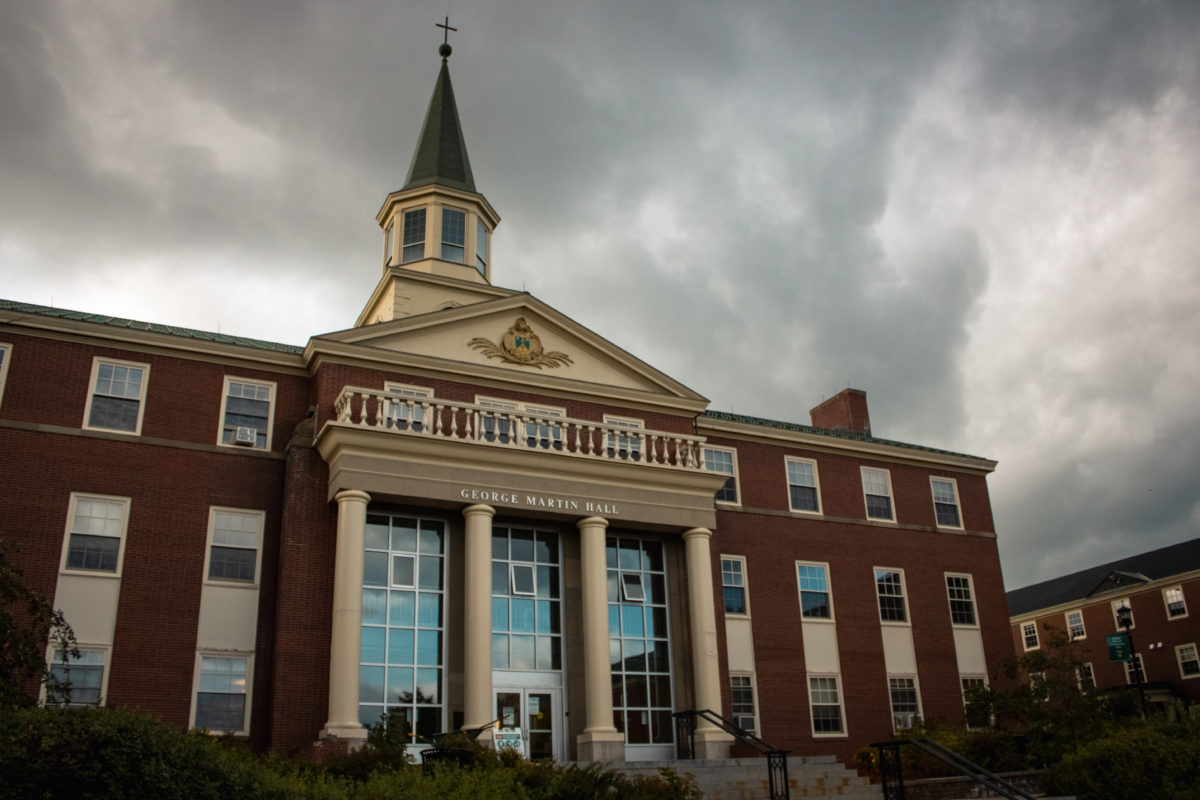

A student responded to the faculty and staff on the email chain, voicing their experience in detail about sexual violence involving the UNB Student Health Centre. Fenwick replied to the email chain and said the administration received the message and would be contacting the student.
UNB released its statement on Nov. 12, which said sexual violence incidents at UNB will be taken seriously and that it’d be contacting the parties involved in an “alleged incident.” The statement didn’t specify the issue occurred at the Student Health Centre.
After repeated attempts, The Aquinian did not receive comment from UNB in time for publication.
‘Policy isn’t the be all, end all’
Brock Richardson, director of student services at STU, attended the protest and said he wants to listen to survivors, adding that events like the protest are important and powerful.
Richardson said policies can help prevent or respond to sexual violence, but the issue isn’t going to go away because of policy. What is needed more, he said, is a shift in culture because it’s a societal issue.
“Policy is an important part of it, but policy isn’t the be all, end all. We have to do the education, we have to do all these pieces and keep working on them,” he said.
The future
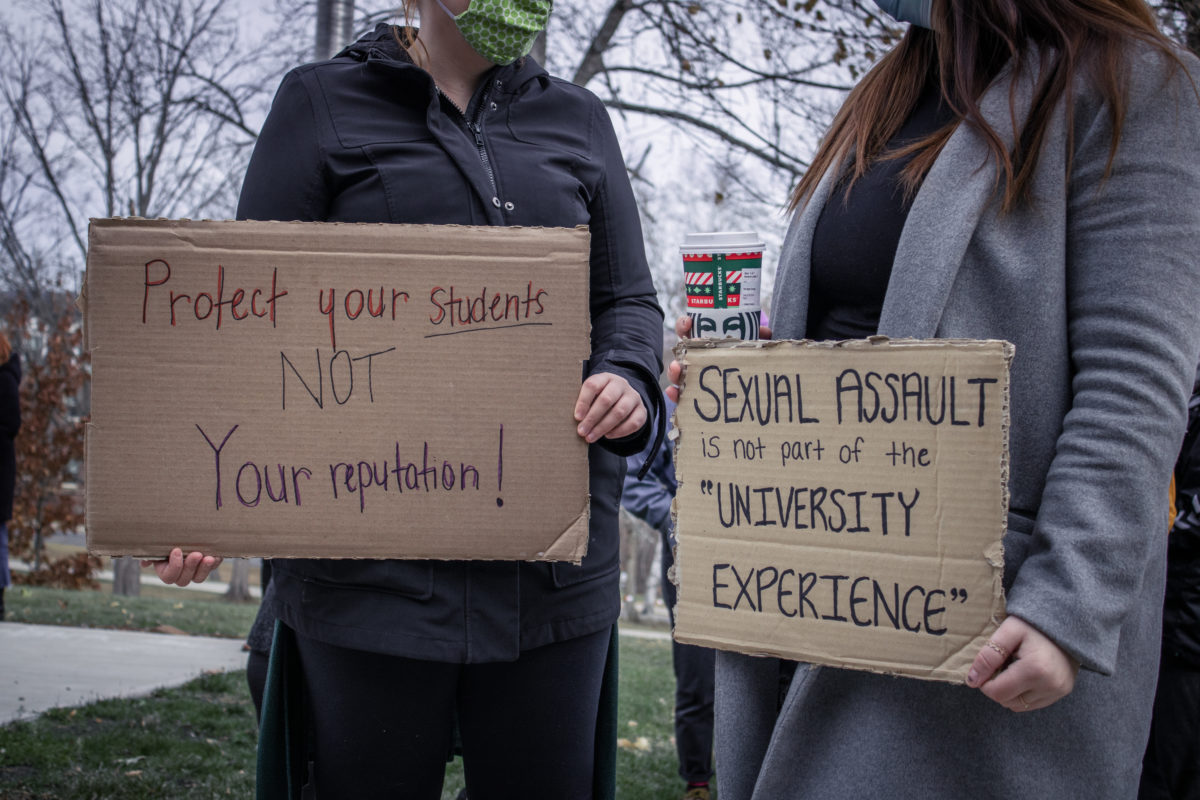

Moving forward, Murphy wants UNB to communicate with survivors and acknowledge its flaws. She said if UNB doesn’t see a problem within its institution, nothing will change.
“They also need to take into consideration and listen to survivors who don’t feel like they can speak publicly because their voices are … every bit as valid,” said Murphy.
In the era of the Me Too movement, Roy said people are more willing to talk about sexual violence.
“If we speak out, then they have to do something about it. They can’t ignore us when there’s 400 of us at a protest.”
Students can access sexual violence resources at stu.ca/sexualviolencesupport.
